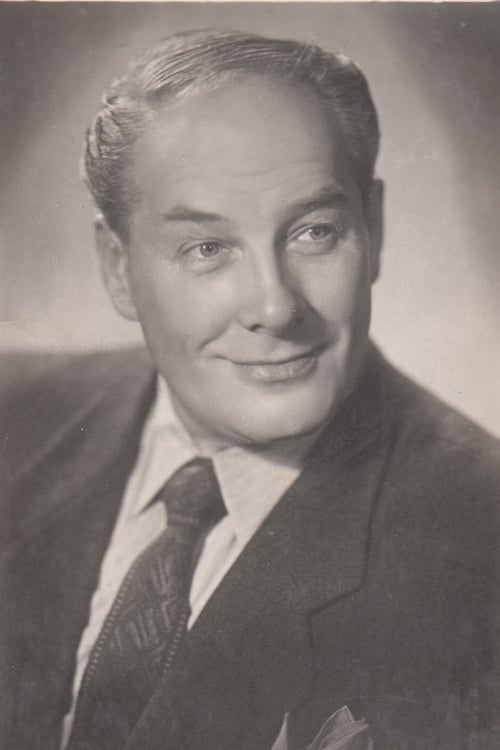
Boris Tenin
Birth : 1905-03-23, Kuznetsk, Penzenskaya guberniya, Russian Empire
Death : 1990-09-08
History
In the years 1937-1946 - artist of the Leningrad Comedy Theater. Since 1946 - actor of the Studio Theater of the film actor in Moscow. In the years 1955-1962 - actor of the Moscow Theater of Satire. Since 1962 - actor of the Moscow Drama Theater on Malaya Bronnaya. Since 1974 - actor of the Academic Theater named after Vladimir Mayakovsky. In 1933, he taught clowning at the Moscow Circus College, in 1935 he acted as a clown in the arena of the Moscow Circus. Honored Artist of the RSFSR (03/11/1939). People's Artist of the Tajik SSR (05.01.1944) (from 1941 to 1944, the troupe of the Leningrad Comedy Theater worked in evacuation in Tajikistan). People's Artist of the RSFSR (03/06/1950). People's Artist of the USSR (10/22/1981). Boris Mikhailovich was married to actresses Olga Ivanova (first wife of Grigory Alexandrov) and Lydia Sukharevskaya. Boris Tenin suddenly died in Moscow on September 8, 1990, one second from a cardiac arrest. He was buried at the Vagankovsky cemetery. The actor died a year before the collapse of the Soviet Union, and in October 1991 his wife, Lydia Sukharevskaya, passed away.

A young music video director, a ballet dancer and a dolce vita seeker - they come to Moscow to conquer the city, but each of them goes their own way. Sooner or later the three of them realize: to get what you are striving for you might risk many things, but friendship and love.
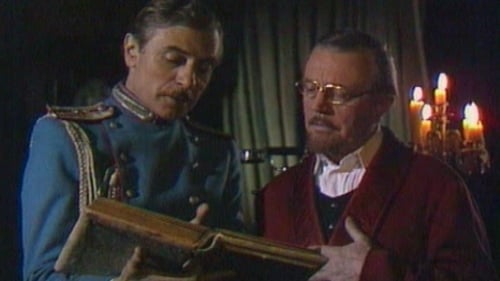
Yakov Samgin - dydya Klima
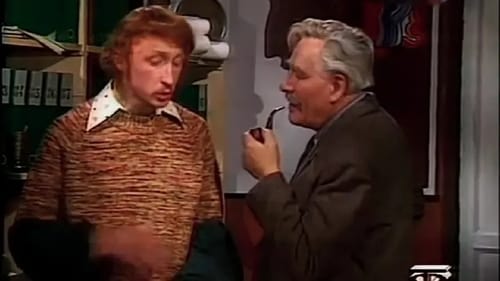
Maigret

Socrates
Political pamphlet based on the story of the Finnish writer Martti Larni "Socrates in Helsinki".
Spring of 1944. In the paradise, which has long been settled by the philosopher Socrates, a fired soldier Vittori Virten arrives. The philosopher respected the newcomer with great respect, and they even became friends. Once having distinguished himself before God, the heroes get a vacation on Earth and go on a journey: the soldier decides to visit his family in Laconia, and the sage just wanted to see the world — did he think it once, and decided to join the soldier...

Maigret

Maigret
Investigating the murder of a resident of the suburbs Louis Touré, Maigret faces the indifference and cruelty of the people surrounding Louis in recent years. The diagnosis and the verdict — all guilty.

Maigret
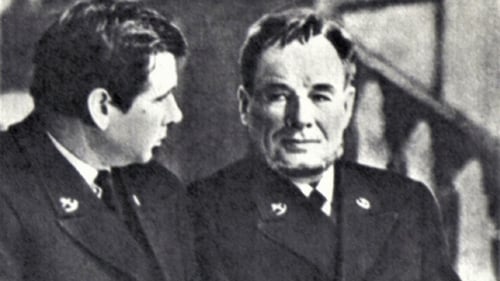
captain Niybur

Larion Ivanovich Koval, retired colonel

Pavel Vassilievich
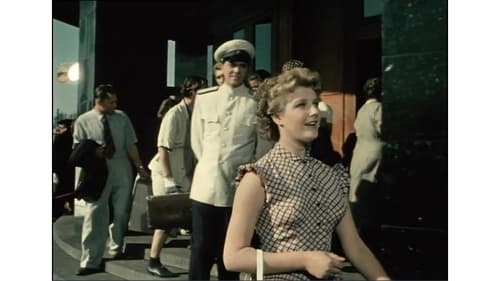
Egor Petrovich Bozhko, Sonya's father
A funny story about a life of a big department store and its employees and customers.

Nesterka

Mark Donskoy went to the wilds of Siberia to film this Soviet movie about a community that resists the temptations of a wicked American capitalist who wants to exploit their lands.
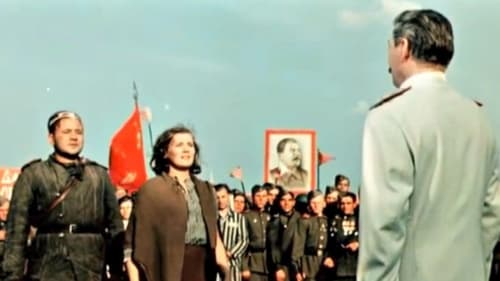
Gen. Chujkov
Surrounded by a few party officials, Alexei Ivanov, a stakhanovist smelter, is decorated by Stalin. The "Little Father of the Peoples" takes this opportunity to invoke threats of war.... One day, war indeed breaks out. Bombs fall on the field where Alexei finds himself in the company of the schoolmistress Natacha, his fiancée. Alexei joins the Red Army and soon becomes a sergeant. Fighting rages and German troops advance. Natacha is arrested and deported. But the tide turns decisively with the German defeat at Stalingrad. Now the major offensive against Hitler can begin.

Murphy
The film is based on the play by K. Simonov. It is the story of an American journalist who spends time in Russia and sees socialism in action. Upon his return to the U.S., a prestigious editor asks him to write a book about his experience. He receives a handsome advance for the project and he and his fiancée are able to buy a house, a car, and other symbols of the American dream. But the editor’s generosity comes with a caveat: the book must present a negative picture of Soviet society. Will he simply keep the money and do what is expected of him, or will he instead tell the truth?

Playwright (as B. Tenin)
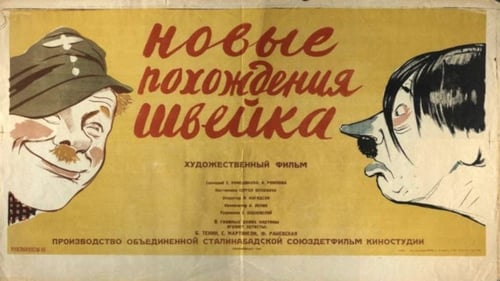
The New Adventures of Schweik adopted to the WWII reality.

Apollon Golofeyev
Chronicle of the life of Russian poet Michail Lermontov, from the final days of Alexandr Pushkin to the fatal destiny of the poet himself.
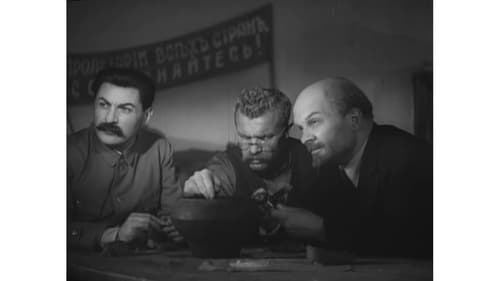
Pvt. Ivan Shadrin
The story of the Bolshevik revolution through the eyes of a peasant who, as a soldier, gets caught up in the proceedings under the tutelage of Lenin.

Vasili Danilovich Vozhevatov
Ogudolova, unlike her sisters, refuses to obey her mother's wish that she marry a wealthy old man in order to collect a dowry

Roman Kargapolov, former shepherd
In a Kazakh village at the beginning of Soviet power, a wealthy kulak (landowner) voluntarily denounces his opposition to the new regime and hands over his large home to be a new school for the children of the villagers. But three people in the village have difficulty believing that their class enemy is now their friend.

Горох / Цыбуля
A coming-of-age story about a flute-playing boy from the Mari people, a national minority who lived near the Volga, and how he is educated by the Soviet state.

Vasya
Shame or Counterplan is a 1932 Soviet drama film directed by Sergei Yutkevich and Fridrikh Ermler. The film’s title-song called "The Song of the Counterplan", composed by Dmitri Shostakovich, became world famous and was adapted into "Au-devant de la vie", a notable song of the French socialist movement of the 1930s. This film could be considered as a Stalin propaganda film. The plot involves an effort to catch "wreckers" at work in a Soviet factory. From Wikipedia, the free encyclopedia


Windy
Soviet "proletarian" film about anti-war strike at St Petersburg factory, 1914. Resembles Pudovkin's classic "End of St. Petersburg," made 4 years earlier: backward lad (Poslavsky) from poor village comes to town desperate for work. He's hired as replacement ("scab") worker at big metallurgical factory, which is in the throes of a strike organized by the Bolsheviks (communists). The Bolshevik strikers are led by Ivan Shtraukh (brother of the more famous Russian actor Maxim Shtraukh). At first, the deceitful industrialist's son (Fedosev) involves the naive Poslavsky in an attempt to murder Shtraukh, but the attempt only wounds the heroic organizer. Will Poslavsky follow through with the planned killing, or will he redeem himself by going over to the side of the strikers?

Since director Sergei Yutkevich was a longtime lover of American slapstick, his first films were imbued with a playfulness and cheeriness not typical of Russian cinema. And Kruzheva is a good example of that as he illustrates the friendly rivalries between the youths on village in both a very rough and clowning way.














